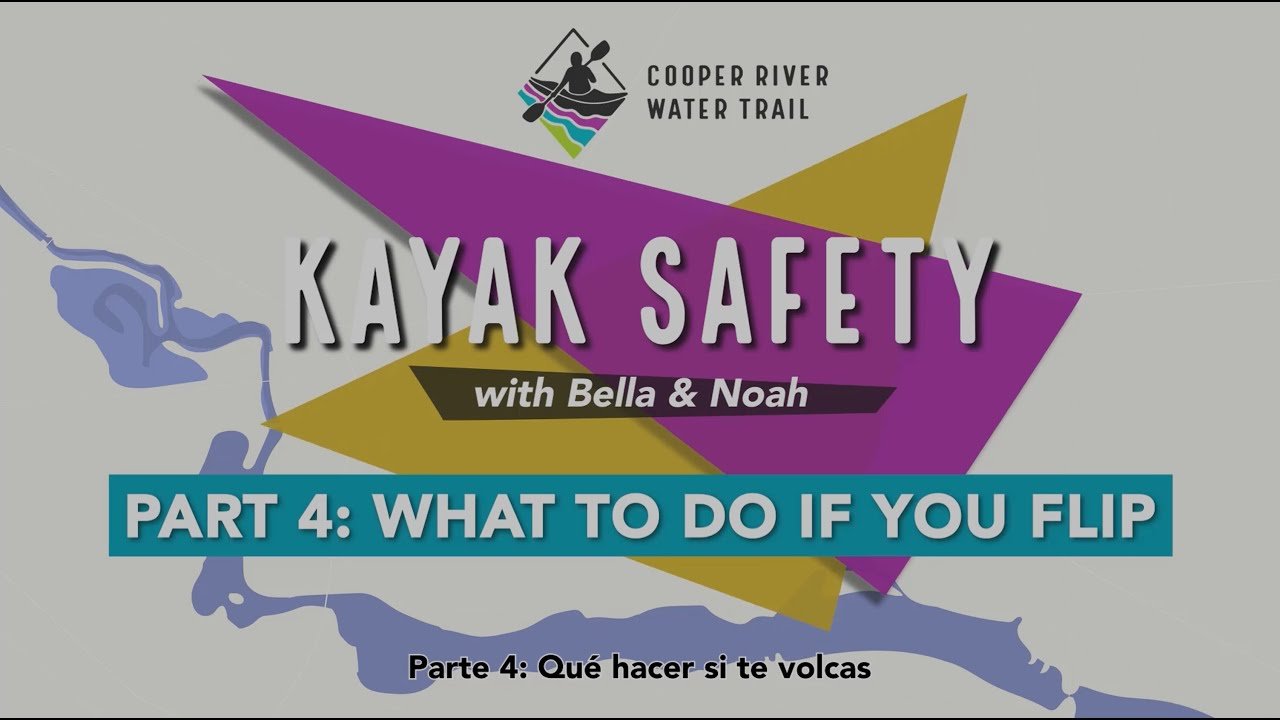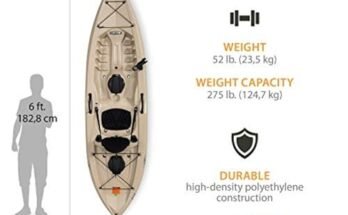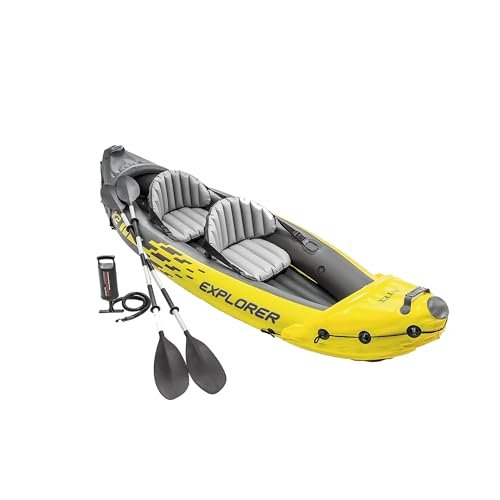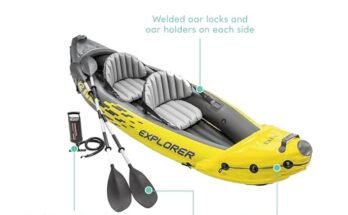Imagine this: you’re paddling smoothly, enjoying the water, when suddenly your kayak flips. It can be shocking and scary, but knowing exactly what to do next can make all the difference.
If you find yourself in this situation, staying calm and acting quickly is key. You’ll learn simple, step-by-step actions to take if your kayak flips—helping you stay safe and get back on the water with confidence. Keep reading to master these essential tips that every kayaker needs to know.
Stay Calm And Assess
Kayak flipping can be scary, but staying calm is key. Take a moment to gather your thoughts and plan your next move.
Assess your situation carefully before trying to get back in or call for help.
Control Your Breathing
After flipping, your body may feel shocked or tense. Slow, deep breaths help you stay calm and think clearly.
- Breathe in slowly through your nose
- Hold your breath for a second
- Exhale gently through your mouth
- Repeat until your breathing is steady
Check Your Surroundings
Look around to understand your environment. This helps you decide the safest way to handle the situation.
| What to Check | Why It Matters |
| Nearby Boats or People | For quick help if needed |
| Water Current and Direction | To avoid drifting into danger |
| Distance to Shore | To plan your swim or recovery |
| Weather Conditions | To know if conditions are worsening |

Hold Onto Your Kayak
If your kayak flips, staying close to it is very important. The kayak can help keep you safe in the water.
Hold onto your kayak to avoid getting separated. It is easier to stay calm and wait for help.
Keep The Paddle Close
Try to grab your paddle quickly after flipping. The paddle helps you move and stay balanced.
Holding the paddle also makes it easier to signal for help. Don’t let the paddle float away from you.
Use The Kayak As A Flotation Device
The kayak is big and floats well. Holding onto it helps you stay above water and saves energy.
Keep your body close to the kayak. This helps protect you from cold water and strong currents.
Righting The Kayak
Flipping your kayak can be scary. Knowing how to right it keeps you safe on the water.
This guide shows you how to get back in your kayak after it flips over.
Perform A Wet Exit
First, you need to get out of the kayak safely. This is called a wet exit.
Hold the paddle and release the spray skirt from the cockpit rim.
- Keep calm and stay near the kayak.
- Push yourself out of the cockpit using your hands.
- Try to keep your head above water.
Flip The Kayak Upright
Next, flip your kayak back to its normal position. This is called righting the kayak.
Grab the far edge of the kayak and pull it towards you while pushing the kayak upright.
- Use your body weight to help flip it over.
- Keep hold of the kayak to stop it from floating away.
- Make sure the kayak is fully upright before re-entering.
Re-enter The Kayak
Finally, get back into your kayak carefully to avoid flipping again.
Climb onto the kayak from the side. Keep your weight low and steady.
- Hold the kayak steady with your paddle or a partner.
- Slide your legs into the cockpit slowly.
- Pull yourself fully into the seat.
- Attach the spray skirt securely to keep water out.

Signal For Help
If your kayak flips, signaling for help is very important. It helps rescuers find you quickly.
Use clear and loud signals to get attention from nearby boats or people on shore.
Use Whistle Or Voice
A whistle is loud and travels far over water. Blow it in short bursts to call for help.
If you do not have a whistle, shout loudly. Use simple words like “Help” or “Rescue.”
- Blow whistle 3 times in a row
- Wait a few seconds and repeat
- Shout clearly and loudly
- Repeat signals regularly
Wave Arms Or Paddle
Wave your arms above your head to make yourself more visible. Use big, slow movements.
If you still have your paddle, wave it up and down. This makes it easier to see you.
- Raise arms high and wave slowly
- Wave paddle if available
- Face the direction of rescuers
- Keep signaling until help arrives
Prevent Future Flips
Kayaking is fun but can be risky if your kayak flips. Learning how to prevent flips keeps you safe. It helps you enjoy the water with confidence.
Simple safety steps lower the chance of tipping over. These tips help you stay balanced and ready for any water conditions.
Wear A Life Jacket
Always wear a life jacket when kayaking. It keeps you afloat if you fall in the water. Choose a jacket that fits well and is easy to move in.
Life jackets reduce panic and help you stay calm after a flip. Never go out on the water without one, even if you are a strong swimmer.
Practice Self-rescue Techniques
Knowing how to rescue yourself after a flip is important. Practice getting back into your kayak safely and quickly.
- Hold your paddle firmly and stay calm.
- Flip your kayak upright if it is upside down.
- Use the paddle or kayak to pull yourself back in.
- Try the “wet exit” and swim to shore if needed.
- Practice these skills in calm water before going far out.
Check Weather And Water Conditions
Before kayaking, always check the weather and water. Strong winds, waves, or currents can cause flips.
| Condition | Risk Level | What to Do |
| Calm water, clear sky | Low | Safe to kayak |
| Windy, small waves | Medium | Be cautious, stay near shore |
| Strong wind, large waves | High | Avoid kayaking |
| Storm or rain | Very high | Do not kayak |

Frequently Asked Questions
What Should I Do Immediately If My Kayak Flips?
Stay calm and hold onto your paddle and kayak. Keep your life jacket on. Try to right the kayak or swim to shore if needed.
How Can I Prevent Panic After A Kayak Flip?
Focus on slow, deep breaths to stay calm. Remember your safety training. Staying calm helps you think clearly and act safely.
Is It Safe To Stay With A Flipped Kayak?
Yes, holding onto the kayak increases buoyancy and visibility. It helps rescuers find you and keeps you afloat longer.
How Do I Perform A Kayak Self-rescue After Flipping?
Position yourself alongside the kayak. Use the paddle to leverage and roll the kayak upright. Climb back in carefully once stable.
Conclusion
Kayak flipping can be scary but staying calm helps a lot. Hold onto your paddle and try to get back on the kayak. Always wear a life jacket to stay safe in the water. Practice getting back on the kayak in calm areas before trying rough waters.
Knowing what to do keeps you confident and ready. Remember, safety comes first, and quick action makes a big difference. Enjoy your kayaking trips with these tips in mind. Stay safe and have fun on the water!




